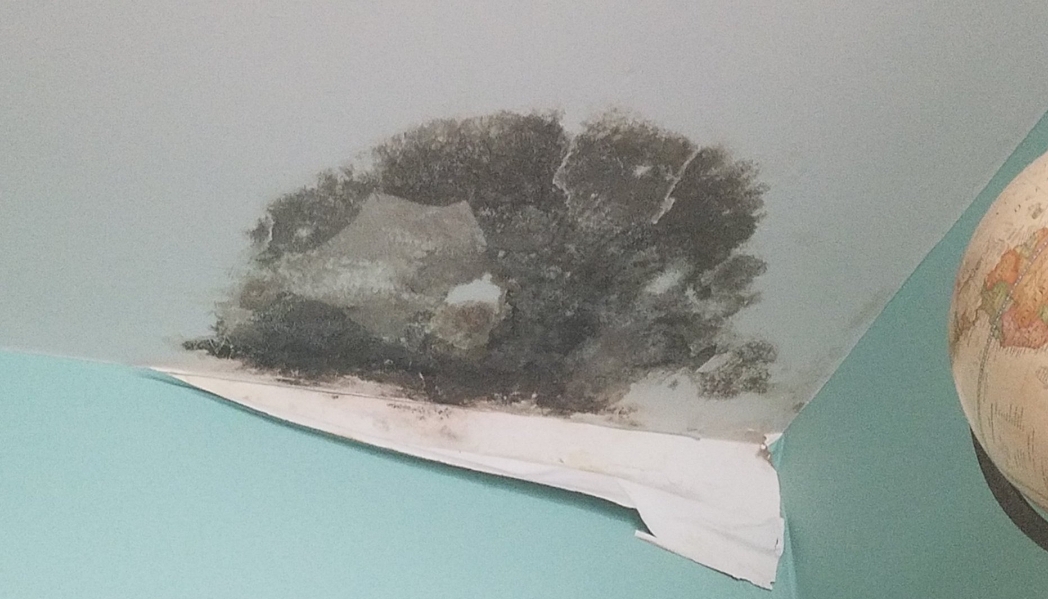
Heavy rains can cause flooding and water intrusions in your home. Perhaps your roof is leaking. The ceiling is cracked. Water is dripping from a light fixture. As a tenant, it can be frustrating and stressful when your landlord fails to make necessary repairs to your apartment after a flood. Not only can it be inconvenient to live in a damaged unit, but it can also pose a risk to your health and safety. If you find yourself in this situation, here are some steps you can take to protect your rights and ensure that your landlord fulfills their legal obligations.
- Notify your landlord in writing: The first step is to let your landlord know about the issue. It’s best to do this in writing, so you have a record of the communication. Email or text is fine as long as you maintain a copy of the communication. If your landlord requires that repair requests be made through an online portal, take a screenshot of your request to document it. Be sure to include specific details about the flood and the damage it caused, as well as any safety concerns you have. Give your landlord a reasonable deadline to make the repairs.
- Follow up with your landlord: If your landlord fails to respond to your initial notification, follow up with them again. You may want to send a second communication to document the situation further.
- Contact the local code enforcement agency: If your landlord still doesn’t make the necessary repairs, contact your local code enforcement agency or department of building inspection. You may be able to file a complaint and have a city inspector come to the property to document the condition and issue a notice of violation to the landlord. Complaints to the San Francisco Department of Building Inspection can be made here. Complaints to the Oakland Planning and Building Department can be made here.
- Withhold rent or repair and deduct: In some cases, you may be able to withhold rent or repair and deduct the cost of repairs if your landlord fails to address the issue within a reasonable amount of time. However, this can be a risky strategy, and you should only do this if you are confident that you are within your legal rights to do so.
- Seek legal assistance: If your landlord still refuses to make the necessary repairs, you may need to seek legal assistance. An attorney who specializes in landlord-tenant law can help you understand your legal rights and options and may be able to help you take legal action against your landlord.
Every tenant has a right to a safe and habitable unit. If a landlord fails to make repairs, the tenant should not have to pay full rent. Generally, if the conditions of a rental unit fall below the minimum habitability standards required by law, and the landlord is on notice of the conditions, then the landlord has breached the warranty of habitability and the tenant’s rent should be reduced to account for the lower rental value of the unit with defective conditions. (Stoiber v. Honeychuck (1980) 101 Cal.App.3d 903, 915.) If the unit is completely uninhabitable, the rent should be $0. The key question is how to enforce the right to a reduced rent.
If the tenant pays rent, the tenant can seek reimbursement of rent paid and will not be at risk of eviction. If the tenant does not pay full rent, the tenant will be at risk of facing an eviction for nonpayment but should have a defense to the eviction. Each tenant will have to decide how to proceed based on their available resources to pay rent, their risk tolerance regarding a possible eviction, and their willingness to pursue an affirmative action to recover rent overpayments.
If a tenant pays rent, the tenant can sue for breach of the warranty of habitability to recover rent that should not have been paid. (Stoiber v. Honeychuck (1980) 101 Cal.App.3d 911.)
Alternatively, if a tenant does not pay rent and faces an unlawful detainer for failure to pay rent, the tenant can defend the unlawful detainer by alleging the defense of breach of the warranty of habitability. (Green v. Superior Court (1974) 10 Cal.3d 616, 635.) If the court determines the landlord breached the warranty of habitability, the court will determine the appropriate rent reduction due to the defective conditions. If the tenant pays the reduced rent, the unlawful detainer will fail and the tenant will be permitted to stay in the unit.
Separately, if a landlord has been cited by a code enforcement officer for the defective conditions and the landlord has not remedied the conditions within 35 days of the citation, the tenant can invoke the protections of Civil Code section 1942.4. If the conditions of Civil Code section 1942.4 are met, a landlord is prohibited from demanding or collecting rent. If a tenant sues for violation of Civil Code section 1942.4, the tenant can recover special damages of $100 to $5,000 in addition to actual damages and attorney fees. For this reason, a tenant should consider calling a code enforcement agency as soon as it becomes apparent the landlord will not promptly fix the defective conditions.
Contact the experienced tenant rights attorneys at Elke & Merchant LLP to discuss how you can enforce your right to a reduced rent if your unit is uninhabitable due to a flood or any other defective condition.













